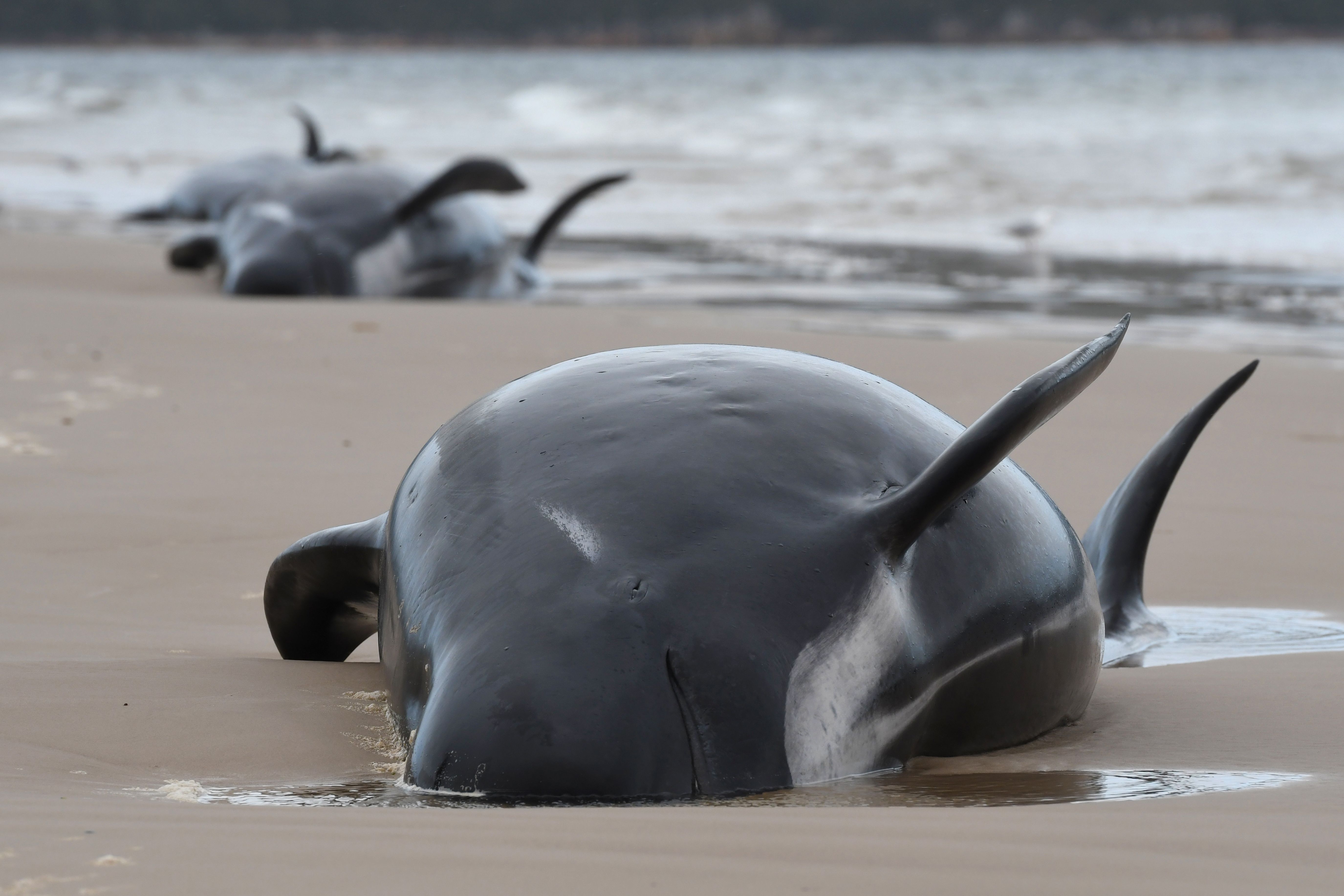Nearly 400 whales dead in Australia’s worst mass stranding
Rescuers will continue to work ‘as long as there are live animals’

Your support helps us to tell the story
From reproductive rights to climate change to Big Tech, The Independent is on the ground when the story is developing. Whether it's investigating the financials of Elon Musk's pro-Trump PAC or producing our latest documentary, 'The A Word', which shines a light on the American women fighting for reproductive rights, we know how important it is to parse out the facts from the messaging.
At such a critical moment in US history, we need reporters on the ground. Your donation allows us to keep sending journalists to speak to both sides of the story.
The Independent is trusted by Americans across the entire political spectrum. And unlike many other quality news outlets, we choose not to lock Americans out of our reporting and analysis with paywalls. We believe quality journalism should be available to everyone, paid for by those who can afford it.
Your support makes all the difference.Almost 400 pilot whales have died in Tasmania in what is thought to be Australia’s largest ever mass stranding.
An estimated 270 whales were first discovered on a beach and two sandbars on the west coast of the Australian state on Monday, before another 200 were then seen from a helicopter on Wednesday, stranded just six miles south of the first group.
Nic Deka, the Tasmania Parks and Wildlife service manager, confirmed on Wednesday afternoon local time that all the animals in the second group had died, bringing the total death toll to 380.
“We’ll continue to work to free as many of the animals as we can,” Mr Deka said. “We’ll continue working for as long as there are live animals,” he added.
Fifty animals were rescued on Tuesday and helped back to the open ocean, according to Mr Deka.
Kris Carlyon, a wildlife biologist at the Marine Conservation Programme, said that the beaching of 470 whales constituted the “biggest” mass stranding ever recorded in Tasmania.
Mr Carlyon was optimistic about the possibility of rescuing more whales, saying “we’ve got a very good chance of getting more off that sandbar”.
Although the cause of the mass beaching is unknown, Vanessa Pirotta, a marine scientist, said it could have resulted from navigational errors.
Ms Pirotta added that the whales’ “very strong social system” was the reason for the high number of beached animals.
It is the first time since 2009 that more than 50 whales have become stranded together in Tasmania.
In 1996, 320 pilot whales washed up in Western Australia, while 600 animals from the same species were beached on New Zealand’s South Island in 2017.
Additional reporting from AP


Join our commenting forum
Join thought-provoking conversations, follow other Independent readers and see their replies
Comments